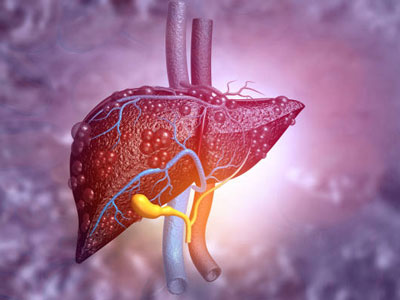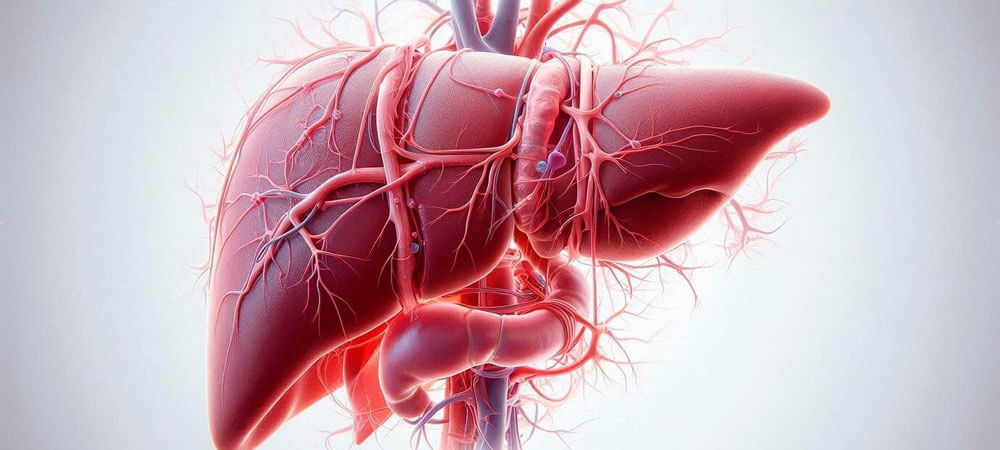Understanding Liver Cirrhosis: A Comprehensive Guide
Many people worry about “liver cirrhosis”, but what does it imply? Dr Kiran Peddi – the Best liver specialist in Hyderabad, will give you the necessary insight on this, its consequences, possible causes, primary symptoms, and possible treatments.
What is Cirrhosis?
Cirrhosis is the final stage of fibrosis, which occurs in many kinds of liver diseases and conditions, including hepatitis and chronic alcoholism. The liver is a fist-sized organ in the human body attached to the diaphragm. It contains thousands of lobules performing numerous significant actions, including but not limited to detoxifying poisonous materials and synthesizing bile for digestion of food, and metabolism can degenerate. In this case, it may result in some individuals developing health issues.

Causes of Cirrhosis
Understanding the causes of cirrhosis can help demystify the condition:
- Chronic Alcohol Abuse: The liver tends to be very susceptible to harm from alcohol consumption, and regular overindulgence may wear away the healthy cells of the liver and cause inflammation and, ultimately, cirrhosis.
- Viral Hepatitis: Hepatitis B and C make a hefty contribution to the total endangerment of the liver all around the globe. Again, cirrhosis can result from chronic infections when properly managed.
- Non-Alcoholic Fatty Liver Disease (NAFLD): This obesity and diabetes-related disease is characterized by the accumulation of fat in the liver with progressive fibrosis of the organ.
- Autoimmune Diseases: Autoimmune hepatitis causes inflammation and Liver injury since the body’s immune system attacks the toe tissue of the liver.
- Genetic Disorders: Similarly, Wilson’s disease also, when the genotype is favourable genetically due to accumulation of copper deposition in the liver, leads to cirrhosis.
- Bile Duct Diseases: These congenital liver diseases, which result in cirrhosis, are secondary sclerosing cholangitis, a disorder of the bile withers, and primary biliary cholangitis.
Do I have these symptoms?
Early-stage cirrhosis may not present noticeable symptoms, but as the disease progresses, individuals may experience:
- Fatigue: A frequently report symptom that may hinder normal functioning within any given day.
- Itchy Skin: A symptom which, perhaps in the early stage, may signal liver issues, such as an abnormal feeling of itching sometimes.
- Jaundice: Malaria that results in jaundice with deposition of bilirubin in the skin and conjunctiva causes yellowing.
- Swelling: It also forms fluid in the abdomen (ascites) and legs.

What are my Treatment Options?
While cirrhosis is irreversible, managing the condition can significantly improve the quality of life:
- Lifestyle Changes: The measures include having a balanced diet, exercising, and abstinence from alcohol, which have been known to reduce disease progression.
- Medications: In some instances, medications can be given to cope with the symptoms or causes.
- Monitoring: Your liver health may be affected if you cannot go for a check-up with the Best liver doctors in Hyderabad as often as desirable.
- Liver Transplant: In some situations, you may need a liver transplant to restore its activity. Living with Cirrhosis Cirrhosis can be a severe condition. However, if the complications are well-managed, most patients can lead everyday lives. You should connect with people and get informed; tell the Best liver doctors in Hyderabad about your condition, as it's an essential thing to consider when having this disease.
Cirrhosis sounds scary, but knowledge can help you prevent endangering your liver and lead a healthy life. Thus, various patients can largely manage the illness with timely diagnosis and treatment. Depending on the situation, if you are concerned about your liver function, then you must visit the Best liver specialist in Hyderabad. This organ, the liver, is crucial to the body and helps improve your health and life expectancy. If you have any concerns, consult Dr Kiran Peddi. Together, we can promote awareness and understanding of liver health.
FAQs
1. What is the life expectancy for those with cirrhosis?
Answer: The effects or outcome of cirrhosis depends on the type, severity of the condition and personal health of an individual. Though cirrhosis is a progressive disease, the prognosis can be considerably adjusted if diagnosed in the initial stage. Such diseases may be slowed if the patient is continually monitored and makes the necessary lifestyle changes.
2. Can cirrhosis be reversed?
Answer: Cirrhosis cannot be treated, but the stage at which it arrives can be arrested, or further damage can be prevented by following a strict dietary regime, taking medication, and treating the cause of the disease. If the problem has not grown to these proportions where the liver is almost affected throughout, it will be possible to attain a great deal of treatment.
3. What lifestyle changes can be cultivated in case of cirrhosis?
Answer: They include increased consumption of fruits and vegetables and whole grains, Non-use of alcohol, exercise, control of body weight, and adequate fluid intake. Such changes may be helpful in adding a needed backup to the liver and preventing any more exacerbation of the processes.
4. How is cirrhosis diagnosed?
Answer: Alcoholic cirrhosis can be suspected from clinical history and examination but can be confirmed by blood tests, USG abdomen, CT abdomen and Liver biopsy in some cases. These tests help assess the liver's status and how badly it is affected.
5. How does cirrhosis happen in the liver, and what do its cirrhotic complications arise from?
Answer: A consequence of cirrhosis is elevated blood pressure in the liver blood vessels (portal hypertension), a filling of the abdomen with too much fluid (ascites), bleeding from dilation of the veins (variceal bleeding), primary liver cancer and a decrease in consciousness level and coordination due to liver disease (hepatic encephalopathy). Keeping abreast of such risks is, however, critical in its management.
Book Appointment



